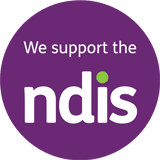A guide to carer respite services funded by the NDIS

Bulk-billed GP

Registered NDIS Provider

Because NDIS funding is focused on the participant’s goals, you’ll rarely see the word “respite” mentioned in a plan. However, that doesn’t mean the NDIS won’t fund carer’s respite—they just call it something different.
On this web page, we’ll provide an overview of NDIS respite care in Melbourne. Then, explain how SeenCare can support participants and their carers.
There are two ways the NDIS can fund carers respite:
Short Term Accommodation
The concept behind short term accommodation respite is simple: The participant is granted funding to stay somewhere other than their usual home for a short period of time.
Short term accommodation respite might be provided for several reasons, such as:
Short term accommodation is usually only granted for up to 14 days at a time, to a maximum of 28 days per year.
In Home or Community Respite
Community and in home NDIS respite care can be a little difficult to understand at first.
The biggest confusion is that the NDIS does not formally fund respite services. However, where it supports a participant’s goals, the NDIS can cover a variety of ‘respite-like’ activities.
With these services, the participant will be cared for by a support worker at home or in the community. In turn, this provides a break (respite) for unpaid carers.
Some examples of community and in home respite are:
Respite care at home and in the community is generally provided on a permanent and ongoing basis.
It sounds simple, but the best way to get NDIS respite services funded in your plan is to ask!
You can do this at the initial planning meeting or scheduled plan reviews. If it’s a while until the next review, you might also like to discuss your respite care needs with a Local Area Coordinator or Support Coordinator.
Two things will greatly improve the chances of being approved for disability respite services:
1. Submit a carer statement: A carer statement is a detailed overview of what a family member or unpaid carer does to support an NDIS participant. It should include all the tasks that are done regularly (e.g., undertaking daily meal preparation, support to attend appointments, clothes washing).
There is no set format for a carer statement. It can be as long or as short as is desired.
A written statement is best because it forms a permanent record, but a carer may also give a statement verbally for a planning meeting (in person or by phone).
2. Link carers respite to goals: The most common reason for respite NDIS services to be declined is that the request isn’t linked to a participant’s goals. Remember, the plan is for the participant, not their carers, so everything must relate to supporting the participant.
On this basis, requesting respite care by stating, “John’s mother needs respite care because she can’t manage his overnight care needs,” is unlikely to be successful.
However, wording the same request from the perspective of John’s needs—“To continue living in his current accommodation and maintain family relationships, John requires overnight support in the form of a sleep shift 4 nights per week”—is far more likely to succeed.
For further information, please see the “Give Us A Break” information sheets on the Carers Victoria website. These cover the topic of respite care NDIS in great detail, including a guide to writing a carer statement.
With a team of home nurses, bulk-billing GPs and experienced disability support workers, SeenCare is the leading registered NDIS provider in Melbourne for people with high medical needs.
We deliver a range of supports that can be used as in home and community respite services, including assistance with:
Because our staff are experts at managing health needs, our carer respite services can also include:
SeenCare is a fully registered NDIS provider with the NDIS Quality and Safeguards Commission. Therefore, you can be assured of receiving a safe and high quality service when you choose us as your respite care provider.
NDIS participants with high medical needs often struggle to find suitable residential respite placements. This is usually because the facility or accommodation provider in question is unable to provide the level of healthcare support the participant needs while on respite.
SeenCare is not a short term accommodation provider. However, if you need additional support to make a residential respite placement viable, we may be able to assist.
Some examples of our healthcare disability respite services include: